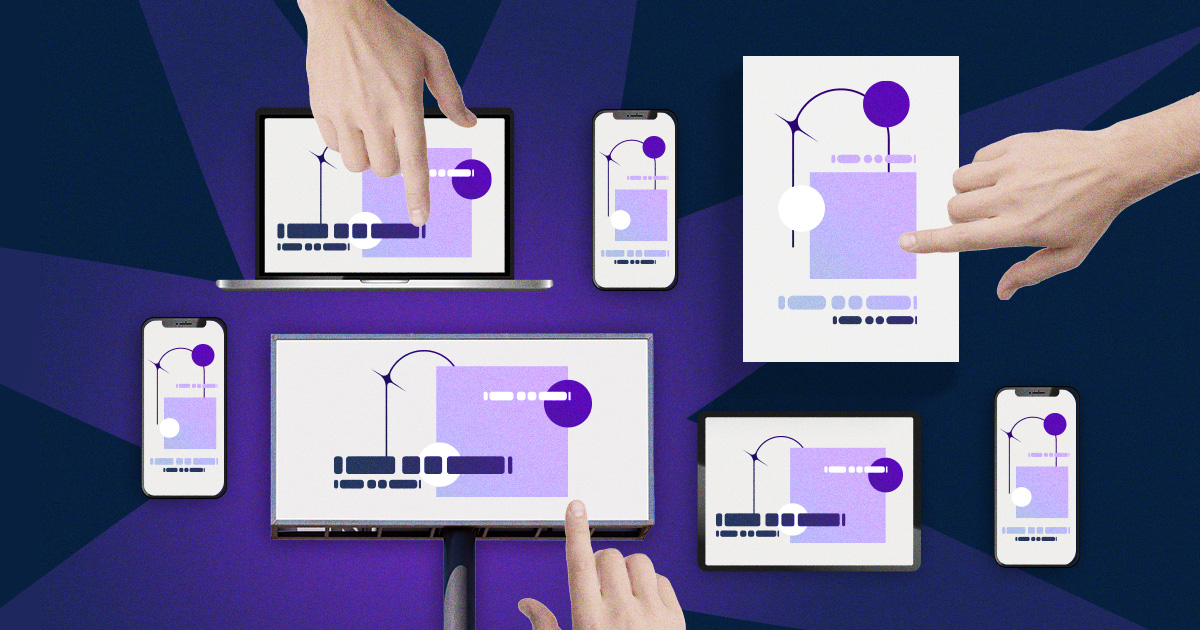
Most companies know what they value, what drives them, and what they represent—that's their brand. The same answers are the building blocks for your personal brand—the authentic manifestation of who you are.
Like a business’s brand, personal brands are built with the same ingredients. In this article, we’ll look at seven mistakes people make regarding their personal brand, but first, we’ll review what a brand is and a few examples of our favorite personal brands.
Personal vs. Business Brands
In many ways, a brand is like a person, hence the term “brand persona.” A brand persona is the combination of virtues, attitudes, and tone that give a company a personality. Whether business or personal, brands are grounded in truths:
Equity
Companies have a history; people have a past.
Vision and Mission
Businesses have goals for the future; people have plans and aspirations.
Competitive Landscape
Businesses and people exist in a dynamic world in which they must survive and prevail.
Consumer and Constituent Resonance
Companies have people they have to please; people have relationships they need to maintain.
Why Brand Matters
Branding isn’t just an exchange: a one-way street of touting product attributes and selling product benefits. Branding is about tapping into the psychology of human behavior to create emotional currency, a relationship, and a shared value. Consumers don’t just want to buy and move on; they identify with and advocate for brands they love.
The most influential brands, whether personal or business, tell us who they are and where their expertise lies. They’re a mix of:
- specific knowledge of an industry or topic
- a unique point of view
- an authentic personality
Personal Brand Mavericks
Who are some of your favorite celebrities or business people? It might feel like they have a certain “je ne sais quoi”, but these examples will help illustrate the virtues of personal branding and how different people lean into their personal brands.
Richard Branson
 Source: CNN
Source: CNN
Known as the world’s most beloved billionaire, Virgin entrepreneur Richard Branson’s personal brand works because he:
- embodies the spirit of adventure
- is a champion for innovation and disruption
- matches his actions with his words
- inspires while having fun
Gary Vaynerchuk
 Source: Business Insider
Source: Business Insider
A contemporary philosopher, Gary Vee breaks down complex concepts in a unique way, all while spreading positivity. His personal brand works because he:
- walks the talk
- has a scrappy approach to getting more happiness from life
- exemplifies business success
- provides content galore, from blogs and books to social media
Oprah Winfrey
 Source: Entrepreneur
Source: Entrepreneur
Oprah captured the hearts of many through her talk show and her compassion for others. Her personal brand works because:
- we know her as Oprah
- she’s living her dream life—and being paid for it
- she uses her branding to change people’s lives
- she embodies a strong spirit of giving
Lebron James
 Source: Olympics.com
Source: Olympics.com
Lebron James’ personal brand isn’t just his championship rings and Olympic record; it’s:
- being a positive role model and an inspiration
- a diversified portfolio of media, retail, and philanthropy
- The Lebron James Family Foundation’s I Promise School
- an authentic life consisting of family and basketball
Tony Robbins
 Source: Business Insider
Source: Business Insider
Life coach and self-help author Tony Robbins embodies motivation. His personal brand works because:
- his personal evolution, elevating from school janitor to international speaker
- his charisma and bold personality
- he is smart and sophisticated
- his contemporary, professional attire
Things to Avoid When Building Your Personal Brand
Oprah, Lebron, Gary, and our other examples have been successful by avoiding these seven mistakes in their personal brand.
Mistake One: Not Defining Your Brand Identity
How’s this for homework: open a Google Doc (or download a free personal branding worksheet) and clearly define your genuine values. What do you prioritize—relationships? Humor? Honesty? Courage? Be completely transparent, listing your actual values, not aspirational values or things you hope to value in the future. Make sure you understand exactly who you are, what you do, and why you do it, and how you deliver it in a way that no one else does.
Mistake Two: Not Differentiating
Differentiating doesn’t mean being louder, it means standing out. Clearly define the things you do that no else can or that you do better than anyone else (flip your paper over and write these differentiators (there’s a section in the worksheet where you can jot those differentiators down!)—that becomes your competitive advantage.
Mistake Three: Not Knowing Your Audience
You can’t be all things to all people, so identify who you resonate with —write down their characteristics, pain points, and motivators to truly understand your audience, and focus on how you can serve them.
Mistake Four: Not Creating Valuable Content
A brand that isn’t expressed doesn’t exist—make sure you exist by creating content that brings your brand to life. Use storytelling and problem-solving to provide content that’s valuable—ultimately, it should entertain, educate, or inspire your audience.
Mistake Five: Not Leveraging Social Media
Whether you like it or not, you have to meet people where they’re at—and they’re on social media. These channels are powerful tools, and a cost-effective way to deploy your message. Launch your content in a way that engages your audience, and focus on quality, not quantity.
Mistake Six: Not Being Consistent
When engaging with a brand, people want to know what to expect. By being consistent, your message will resonate with your audience time and time again. Ensure your content, actions, and words are consistent—your audience will thank you.
Mistake Seven: Not Tracking
How do you know if what you’re doing is working? You can’t improve what you don’t measure, so listen and evaluate often. Ask for feedback and implement changes where necessary—this mistake results in complacency. Your brand, much like life itself, is about constantly improving yourself.
Now What?
Flip these mistakes into rules to follow, and in all that you say, do, and post, ask yourself “is this on-brand?” Reference your brand identity, differentiators, and audience profiles often, and always be on the lookout for ways to improve.
Get started on your homework—download our free worksheet to help define your personal brand.




